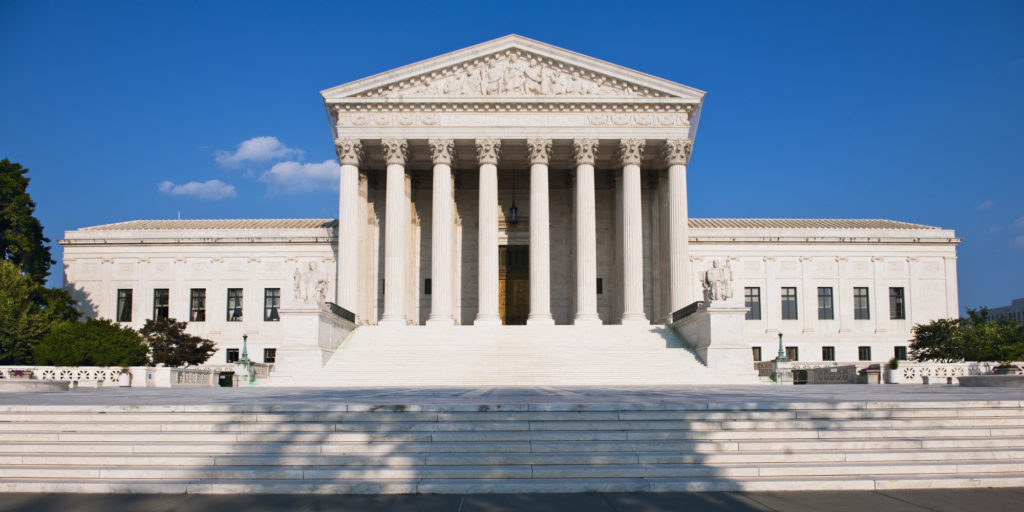Fenway Health was founded in 1971 on the principle that health care is a right, not a privilege.
The leaked draft of a U.S. Supreme Court decision overturning the Constitutional right to abortion that was made public this week takes direct aim at a right to health care that should be sacrosanct.
Should this draft ruling overturning Roe v. Wade become the final ruling of the Court, the number of abortions that take place annually in our country will not change. What will change is that these procedures will become medically unsafe for millions, so much so that many will suffer significant injury, and some will even die as a result.
This is not how health care should work.
Access to abortion is already overly constrained under current law. Even in states like Massachusetts, where the right to an abortion has been codified into state law, getting an abortion is much harder than it should be. Fenway Health, for example, cannot provide abortions to patients and clients who seek them. As a federally qualified health center that operates with federal grant funding, Fenway Health must comply with the Hyde Amendment, which prohibits health centers from using federal funds to provide abortions.
What Fenway Health can do—and will continue to do—is counsel our patients and clients who want an abortion about where they can obtain one. We will continue to offer the full range of FDA-approved contraceptive methods designed to prevent a pregnancy, including emergency contraception that may be prescribed within five days of unprotected sex.
We will also continue to use our voice to advocate for the right to abortion. In 2020, Fenway Health, along with eight other plaintiffs, sued the U.S. Department of Health and Human Services in a complaint challenging the legality of the Trump Administration’s Rollback Rule, which eliminated nondiscrimination provisions in the Affordable Care Act for LGBTQIA+ people; people who are living with HIV and other chronic illnesses; people who have obtained or are seeking reproductive health care – including abortions – and language access for patients with limited-English proficiency, including immigrants. That lawsuit is ongoing.
What can we do together?
Engage in local efforts to expand access to abortion with groups such as Planned Parenthood and Reproductive Equity Now. Although state lawmakers enacted the ROE Act in 2020 protecting the legal right to abortion in Massachusetts, more will need to be done if the federal constitutional protection of the right to abortion is eliminated. Health care clinics that currently offer abortion services in Massachusetts are already serving people from regions of the country where access to abortion is limited. They stand to experience significant increases in demand once the Supreme Court issues its final ruling and local access to safe abortion is immediately eliminated in the 13 states that have passed “trigger” laws—abortion bans that will take effect immediately when Roe v. Wade is overturned. State lawmakers are setting aside funds to ensure that people who need an abortion can have access to one regardless of their ability to pay. But clinics will need to invest in infrastructure to meet increased demand.
Remember that issues concerning our right to make private, autonomous healthcare decisions about our own bodies are interconnected. The lawmakers who have enacted abortion restrictions and bans are the same people who are now working overtime to file bills (over 240 this year alone) that would prevent transgender children and adolescents from accessing medically necessary gender affirming health care. The right to privacy underpinning Roe v Wade that is based on over 100 years of jurisprudence dating back to passage of the 14th Amendment and its guarantee of “equal protection of the laws” has since been extended to LGBTQIA+ Americans. The landmark decision in 2003’s Lawrence v. Texas explicitly held that the 14th Amendment protected intimate consensual sexual conduct. And in 2015, the Court ruled in Obergefell v. Hodges that the 14th Amendment requires all states to grant same-sex marriages and recognize same-sex marriages legalized in other states.
Fenway Health is as committed to our core belief in the right to healthcare now as we were when we opened our doors over fifty years ago. We will continue to do everything in our power to protect that right and to ensure that the people who count on us – and people everywhere – have access to the health care they need.
The work continues.


